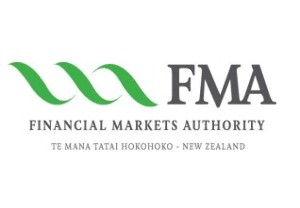by Jenni McManus

Scathing in tone, the report takes aim at what the FMA calls the non-transparent bundling of trail commissions into the management fees and is highly critical of fund managers’ use of “inappropriate” market indices as performance measures.
The report also says that for investors, the value of fund managers’ competence is undermined by “the drag of fees”.
Not surprisingly, the industry is hitting back though individuals and firms are still unwilling to be identified.
Three issues stand out: the aggressive tone and language of the report which for many indicates a breakdown in the relationship between the regulator and the industry; the need to put trail commissions “in context”; and the problem with performance fees (“why don’t they crack down on something everyone agrees is bullshit?”).
For one manager, putting trails for KiwiSaver funds “in context” would see the FMA also turning the blowtorch on similar (but eye-wateringly higher) commissions for life insurance (230% upfront and 20% per year on an ongoing basis, according to one manager) and mortgage brokers (60-80 basis points upfront).
While there is a legal requirement for KiwiSaver commissions to be “reasonable”, some managers believe the regulator has picked on the least profitable part of the industry, which doesn’t make a lot of sense.
“We know there’s an advice deficit [but] we know the numbers are small when you look at what the same advisers are earning on life insurance and mortgages,” one said.
The FMA should at least clarify its rules and expectations, he says. Others aren’t sure what, if any, levers the FMA can pull to bring them into line.
Said one: “The more critical question is ‘what is the problem that the FMA is trying to solve?’ What is broken about the funds management industry which needs to be fixed?”
In spite of the focus on fees, by comparison with Australia KiwiSaver fees were “not inappropriate”, this manager says. On average, KiwiSaver fees are lower than those charged on MySuper – Australia’s cheapest default option for investors.
Despite the FMA’s concern, many say they already split out trail commissions when calculating management fees. And anyone new entering the industry is required to comply with the regulator’s Value of Money guidelines which require this transparency. Performance fees are a much bigger issue than trail commissions, they say.
Another market player takes issue with the FMA’s contention that fees undermine a manager’s competence. “If a manager is extremely competent and charges high-than-average fees, why should that undermine competence?
“Surely, in a competitive open market with significant consumer choice of style and fee structures, consumers will vote with their feet if the competence of their managers is undermined by the fee they charge?”
On the question of inappropriate performance benchmarks, one suggests if the FMA is unhappy, it should set benchmarks for KiwiSaver funds.
“There may well be specific instances where more appropriate indices could be used. However, the FMA already has the power to regulate this issue. The question is why hasn’t it done so?”
According to this firm, bundling trail commissions is a “traditional practice,” not only in New Zealand “but throughout most of the world”. And while they might be bundled, trails must be disclosed to investors by advisers through the Advisers’ Disclosure Statement.
In general, investors (particularly those with less to invest) are averse to paying advice fees but want and need advice. Bundling effectively provides a pay-as-you-go mechanism, this manager says.
Others say it is valid for the FMA to try to ensure advisers receiving trail commissions for their clients’ investments are actually providing that advice but removing the commissions will lead to the unintended consequence of removing access to advice for most investors. There are strong evidence supporting that view just across the Tasman, they say.
“The risk of imposing a one-size-fits-all approach to the provision of advice is that it adds huge costs to the industry and there is no evidence it will improve investors’ outcomes.”
Another unintended consequence might be consolidation of the industry as fund managers and advisers realise they need to merge in order to deal with the increased regulatory burden coming their way.
Morningstar, in its most recent Global Investment Experience report on fees and expenses, released on 30 March this year, puts New Zealand in the ‘average’ category.
It notes that funds without loads or trail commissions are widely available in the New Zealand market and domestic asset-weighted fees are “broadly competitive”.
Morningstar also says the lack of sales loads or commissions means advisers find it hard to provide advice to the KiwiSaver sector as 80% of that market is controlled by the banks.
But Morningstar also commented on funds being allowed to charge asymmetrical performance fees, meaning additional fees can be charged for outperformance but there is no corresponding reduction for underperformance. And it mentions the use of inappropriate benchmarks as hurdle rates in performance measurement.
“Large performance fee earnings, which reflect market movements rather than manager skill, have been evidenced in recent years,” Morningstar says. In relation to fees and expenses, the New Zealand market has decline since its last report.
Australia, however, is one of three markets to receive Morningstar’s top rating, along with the USA and the Netherlands. Australia’s ongoing fund fees are “typically unbundled”, Morningstar said, with an “investor-friendly approach to initial charges and ongoing commissions”.
| « [The Wrap] Three things we learnt from the FMA Value for Money report | Tough times ahead for NZ economy: Nikko economist » |
Special Offers
Sign In to add your comment

© Copyright 1997-2026 Tarawera Publishing Ltd. All Rights Reserved
He suggested a client could wait until 65 years of age, then upon withdrawing their funds, visit a financial adviser and pay the commercial rate for good, sound advice.
I think at that point I left and had a drink.